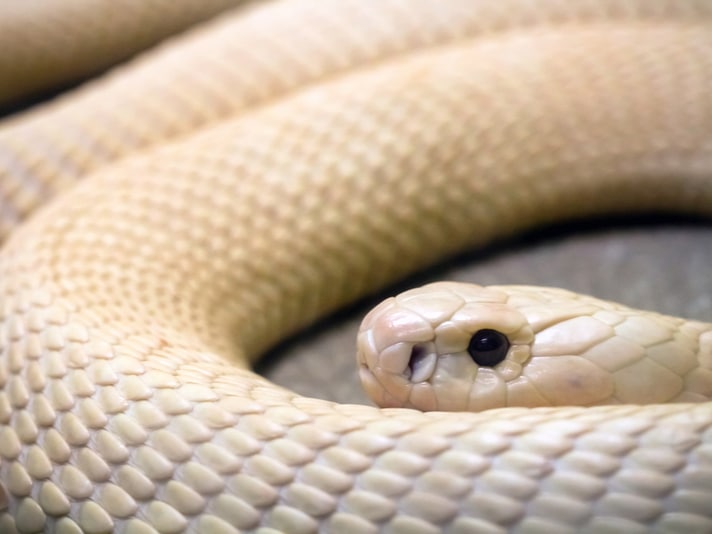The monocled cobra was about 5 feet in length and was found 200 yards from where it was reported.
Another cobra escaped in Florida this past week, but luckily this one was captured within hours of escaping. A man in Buckingham, Fla. called 911 November 6 after seeing the snake, what was described as a 5-foot monocled cobra (Naja kaouthia). Florida Fish and Wildlife Conservation officials and volunteers searched for the snake on November 6 and into most of November 7 until they found it about 200 yards from where it was first reported. According to USA Today, the snake belonged to Lewis Mark Pellicer, who holds a venomous reptile permit to keep the snake, but apparently didn’t report the snake missing.
5 Facts About the Monocled Cobra
- The monocled cobra (Naja kaouthia) is native to South Asia and Southeast Asia. The snake can be found in India, China, Vietnam, and Cambodia, as well as Malaysia, Bangladesh, Bhutan, Myanmar, Laos, Nepal, and Thailand.
- The snake’s length ranges from 4 to 5 feet with a maximum length of 7.5 feet. They are called monocled cobras due to the O shape hood pattern, also knowns as the monocellate hood pattern.
- Monocled cobras are found in grasslands, scrublands and forests as well as human settlements and cities. They are also known to inhabit agricultural lands such as rice fields where they are known to hide in burrows of small rodents.
- They feed on small mammals such as rodents, and other snakes. Juveniles eat amphibians.
- The monocled cobra’s venom is one of the fastest acting snake venoms in the world. Its venom, which has different potency depending on where the snake is found, can cause death within an hour of envenomation. The neurotoxins in its venom leads to drowsiness, neurological problems and muscle issues.
According to the report, prior to finding the snake, FWC officers did a door to door alert, letting neighbors know that it was possible a venomous snake may be hiding out on their property, and gave them the phone number to the FWC if they spotted something. The officers remained in the area hoping for another sighting, which occurred in the afternoon of November 7. The snake was found curled up next to a house and took off into some adjacent woods as soon as the FWC officers closed in on the snake. It was captured soon after and is currently at a facility that will care for the snake until the FWC completes its investigation.
This past summer, a monocled cobra was captured in a Houston, Tex. high rise and was later euthanized. And in July 2015, a man in Round Rock, Tex. died from an apparent monocled cobra bite. He was found dead inside his car. The cobra suspected of biting Grant Thompson was found dead on the road near the parking lot where Thompson was found.
John Virata keeps a western hognose snake, a ball python, two corn snakes, a king snake, and two leopard geckos. His first snake, a California kingsnake, was purchased for $5. His first pet reptile was a green anole that arrived in a small box via mail order. Follow him on Twitter @johnvirata



